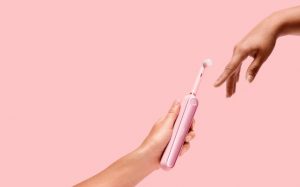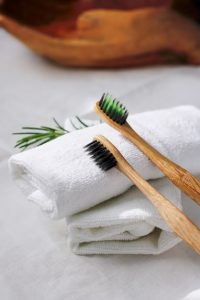18 May How Often You Really Need to Replace Toothbrush?: Ultimate guide
To replace toothbrush is one of the best practice to maintain good oral health. You may be brushing your teeth regularly as recommended by your dentist. However, if you’re using a toothbrush with frayed bristles, you could still be at risk of developing dental issues.
A worn-out toothbrush is less effective in removing food particles and plaque trapped around your teeth and gums. It can also spread bacterial infection or result in enamel damage. To protect your teeth from gum disease and decay could prove futile, if you don’t go for routine dental cleanings.
SO, WHEN SHOULD YOU REPLACE YOUR MANUAL OR ELECTRIC TOOTHBRUSH?
If you’re using a manual toothbrush, get a new one every 3-4 months. Otherwise, the bristles will bend out of shape or break down with prolonged use and wouldn’t slough away plaque and bacteria as needed.
If you’re using an electric toothbrush, the rule of thumb is to replace the head every 12 weeks. But since electric toothbrushes have shorter bristles than their counterparts, you might notice that the bristles become frayed more quickly. You’ll want to change the toothbrush head if you see signs of wear even if it’s before 12 weeks.
WAYS TO TAKE CARE OF YOUR TOOTHBRUSH:
How you handle your toothbrush can affect its condition and lifespan. Here are a few tips to keep in mind:
NEVER SHARE A TOOTHBRUSH: It doesn’t matter if you’re sharing it with your spouse or any other immediate family member.Asbacteria transfer to bristles, it would be easy to find a way into another person’s mouth.
AVOID VIGOROUS BRUSHING: You know you’re applying excessive pressure when cleaning your teeth if your manual toothbrush appears frayed too quickly.
THOROUGHLY RINSE YOUR TOOTHBRUSH AFTER BRUSHING: Use tap water to clean the toothpaste, food particles, and plaque debris from your toothbrush. It is not advisable to sanitise it with a disinfectant, mouthwash, or soap.
· ENSURE THE TOOTHBRUSH HEADS DON’T TOUCH EACH OTHER WHEN IN THE STORAGE CONTAINER: That helps avoid germs from spreading from one toothbrush to another.
· AVOID KEEPING TOOTHBRUSHES IN CLOSED CONTAINERS: When toothbrushes are not exposed to air to dry out, they can promote mould and bacteria overgrowth.
We can’t emphasise enough the importance of following the best oral health practices. Sticking with an old toothbrush is not one of them, unfortunately. It could cause more problems than it solves. Consider changing your toothbrush or toothbrush head as recommended and schedule regular dental checkups. If you are in Budapest, you can contact us for a Free dental checkup.









No Comments